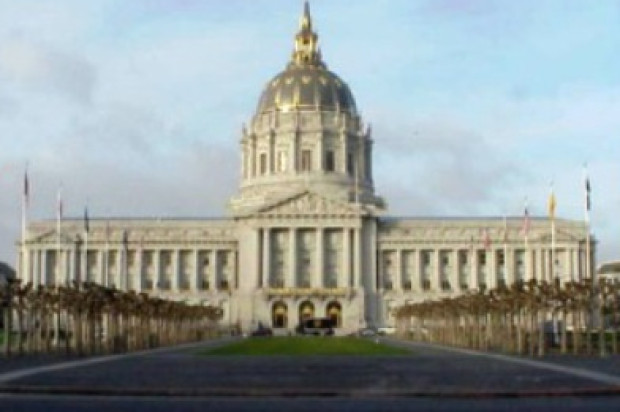
Following a U.S. Supreme Court ruling earlier this year, the San Francisco Board of Supervisors on Tuesday passed a new version of an existing ordinance that seeks to ensure women can access reproductive health services without undue harassment.
The board voted unanimously to approve a proposal to limit harassment by protesters at reproductive health and abortion clinics like Planned Parenthood.
The board passed a 25-foot “buffer zone” law in 2013 modeled after a similar Massachusetts statute that established a zone outside of reproductive health clinics.
In June, the Supreme Court struck down the Massachusetts law in the case McCullen v. Coakley, ruling that prohibiting protesters from entering or remaining in a buffer zone denies them their constitutional right to free speech.
Since the ruling, Campos said he has been working with the city attorney’s office to re-craft the San Francisco ordinance so it complies with the decision.
“It’s not a buffer zone in the way it was before,” Campos said. “It actually focuses on the conduct of the individual and if that individual is harassing someone.”
Under the ordinance, those wishing to engage in “quiet, consensual conversations” will be allowed within the 25-foot zone, but those wishing to shout and speak with amplifiers or in elevated tones need to stand 50 feet away.
The ordinance also prohibits people from impeding access to the door of a reproductive health facility, Campos said.
If anyone violates any of the provisions, police officers can require an offending person to disperse and remain 25 feet away from the facility for eight hours or until the business closes for the day.
“This allows the kind of quiet counseling outlined in McCullen but not loud, harassing behavior,” said Hillary Ronen, legislative aide to Campos.
In the Supreme Court case, petitioner Eleanor McCullen said she would typically try to initiate a conversation by saying things like, “Good morning, may I give you my literature? Is there anything I can do for you?” according to the decision.
Ronen said that type of behavior would still be allowed within the zone under the ordinance, but the ordinance would prohibit anyone — including pro-choice demonstrators — from being loud and getting into arguments outside of the facility.
“It happens all the time where pro-choice people get into really loud fights with pro-life people,” Ronen said. “That’s incredibly intimidating and stressful to women entering the clinic.”
Massachusetts initially enacted a zone in 2000 allowing some people to pass out pamphlets and engage in consensual conversations, but not others, according to the McCullen decision. The 2007 law that was struck down by the Supreme Court was an attempt to make the types of allowed behavior more clear.
Campos said San Francisco’s ordinance sends a clear message of what behavior is appropriate and what isn’t.
“We believe this law is as clear as it can be given the guidance from the Supreme Court,” Campos said. “We’ll have to wait and see what happens beyond that, but we’re confident this will survive legal scrutiny.”
Planned Parenthood Northern California president Heather Estes lauded the board’s unanimous vote.
“Planned Parenthood Northern California is ready to roll up our sleeves to work with San Francisco’s leadership to fully implement this ordinance to ensure our clients’ safety and dignity are respected,” Estes said in a statement.
Campos said it was important for San Francisco to lead the country in protecting the right of women to access reproductive health.
“If we cannot protect a woman’s right to choose in San Francisco, where can we protect it in this country?” Campos said.
Erin Baldassari, Bay City News









